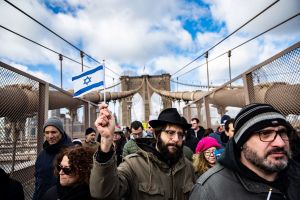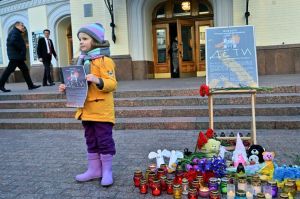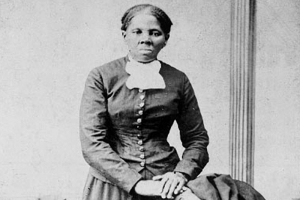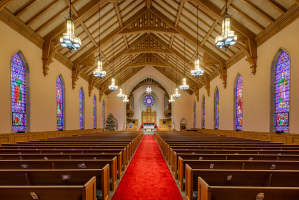Black Presbyterians Facing Challenges
After 200 years, black Presbyterianism faces its challenges in a denomination that is still overwhelmingly white.
The National Black Presbyterian Caucus is an organization of inter-generational black Presbyterians and provides a means for which African American leadership can raise their voices to the larger church, mainly the Presbyterian Church (U.S.A.). Some, however, are pondering whether to continue out of the predominantly white denomination.
Many in the NBPC are at a place where they may be willing to follow African-American leadership out of the PC(USA), according to the Rev. Warren Dennis, a Presbyterian minister and seminary professor from New Brunswick, N.J.
Dennis addressed a crowd of over 500 people who attended the 200th anniversary celebration of black Presbyterianism and 39th NBPC convention earlier this month in Philadelphia.
"This caucus in now challenging itself and the denomination about its willingness to be partners and that's a real good conversation to have," said Dennis, according to the Presbyterian News Service. "Whether or not the Presbyterian Church (U.S.A.) is serious about partnership with the African-American community."
Some younger black Presbyterians feel that they might be a better black church if they were not connected to the predominantly white Presbyterian Church.
But the Rev. Gayraud S. Wilmore, a founding NBPC member, says it's "too early to come to that conclusion."
"I don't think we have demonstrated yet the freedom we have. The contributions we can make within this church if we take ourselves more seriously," he said in a video message to convention attendants.
Wilmore told young people to be proud of being a black Presbyterian even though other faith groups may boast larger African-American memberships.
When Shaya Gregory was a little girl, people would question her affiliation with the Presbyterian Church asking, "Really! You're Presbyterian, but you're black?!" You sure you aren't Baptist?" she recounted in a testimony.
Surrounded by hundreds of black Presbyterians at the July 11-15 convention, Gregory said she felt validated and a sense of pride in the 200-year legacy.
"Be proud of the fact that you have held your ground and that your ancestors held their ground in terms of the mandate from the gospel for truth, liberation and equality in this world," said Wilmore.
The Rev. Joan S. Gray, moderator of the PC(USA)'s 217th General Assembly, expressed regret for the past two centuries of struggles blacks faced in the church.
"I, at this time, would like to say that word. It is a word of regret and even apology for all the ways that the Presbyterian Church down through the centuries has made it hard to be both black and Presbyterian," she told the hundreds of black attendees as she acknowledged that white Presbyterians had barred entry to African-American worshippers in the past.
That "white privilege" is still felt today, according to Gray.
"I'm very sad that white privilege still flows into the doors, in your faces, and the faces of others in this church and in our nation," she said. "And I see the word sorrow for that. But I'm also very aware that sorrow is not enough. We are called to repentance."
While the Presbyterian Church is about 90 percent Caucasian today, the Presbyterians acknowledged the advancement of the African-American cause in the church.
"African-American Presbyterians have been a vital and important voice for justice, compassion and inclusion," said Linda Valentine, executive director of the General Assembly Council of the PC(USA). "An important witness as Christ calls us to model all those things. You are children of God through faith. There is no longer Jew or Greek, there is no longer slave or free, there is no longer male and female, for all of you are one in Christ Jesus."
Today, millions of dollars are being granted to church projects across the nation to spur the growth of ethnic and multicultural churches in the PC(USA).
The question today for black Presbyterians is not just about their future within a predominantly white church, but how to fulfill the mission of the church at large.
"We have a long way to go, not just because of African Americans receiving or being partners with a predominant (white) church, but a long way to go in just carrying out the gospel mandate of Christ," said the Rev. Jerry L. Cannon, who completed a four-year term as NBPC's president with the convention.
The National Black Presbyterian Caucus was organized in 1987 to advocate for racial justice, maximize black participation in the life and mission of the church, facilitate the discussion and communication of issues and the development of strategies and be the focal point of the celebration of the black religious heritage. Today, NBPC works to ensure that the witness of Presbyterians of African descent is healthy, growing, dynamic and empowering; racial justice is integral in the church's self-understanding and lived out in every aspect of ministry; the PC(USA) is culturally plural in mission and ministry.





























